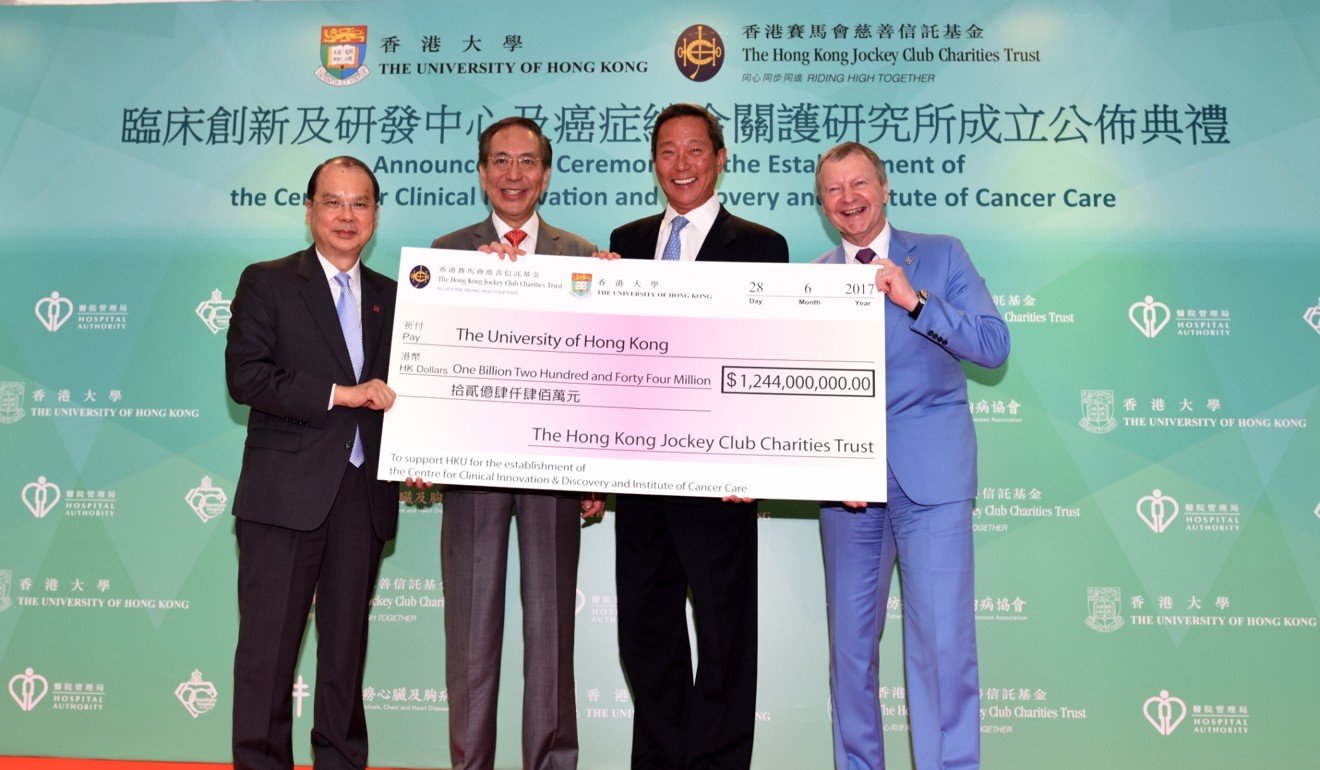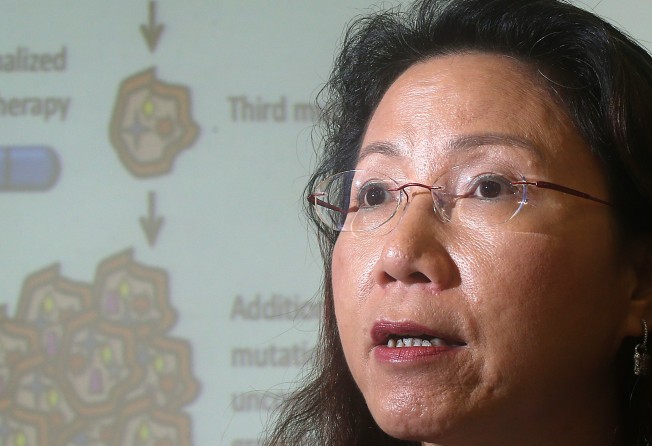
Early screening on the cards once Hong Kong’s first cancer centre opens in 2025
Check-ups slated for those whose parents have died from the disease as samples will be stored in a massive freezer

Hong Kong’s first cancer centre will allow those who inherit cancer-causing genes from their parents to receive early preventive treatment, its research director said.
The centre, which is due to open in eight years in the redeveloped Grantham Hospital, will include a massive freezer to store biosamples of local cancer patients, according to Professor Leung Suet-yi, associate dean of the University of Hong Kong’s faculty of medicine.
The move would change the way the number one killer in the city was treated, she said.
Instead of just providing cures for sufferers, the HKU centre will study whether the disease is inherited and provide cancer-gene screening for family members such as siblings.
If a family member was found to carry the gene that made them more vulnerable to cancer, researchers would advise them to undergo regular health checks from a young age, Leung said.
The data collected from patients will be stored “for a long period” and used in different studies conducted in the research hub to identify more precise cures, including those involving high-end technology such as cell therapy.

“The treatment direction for cancer will see earthshaking changes in the coming 10 years,” Leung told the Post. “The role of this centre will be very important. HKU will have to keep renewing its facilities with advanced equipment to support innovation and discovery.”
The city’s first cancer centre, expected to be ready by 2025, was made possible through a HK$1.24 billion donation from the Hong Kong Jockey Club – the largest single donation in HKU’s history.
Leung said its Centre for Clinical Innovation and Discovery will look into the disease in a more comprehensive way by studying a patient’s DNA, ribonucleic acid, protein and metabolic system.
Cancer cells will be analysed in great detail to identify the mutated gene that caused the disease. Such data would be arranged in family clusters and hereditary cases would be identified, Leung explained.
She cited an example of a family in which the father of four died of colon cancer at 51. Years later, his first daughter was diagnosed with the same disease at the age of 41, the second son at 51 and the third daughter at 47.
Leung said if the centre was in operation, it would study the mutated gene of this cluster and perform screening for the youngest daughter and other descendants. A high-risk family member would then be given regular health checks and preventive treatment.
The centre will also look into innovative therapy and precise treatment for patients who suffer different kinds of cancers, which claim an average of 13,800 lives in Hong Kong a year.
“It is expected that over a few thousand targeted medicines will be available in the coming decade as the manufacturers are pouring [money into their development], and it will be easier for them to gain approval. So we really need more precise diagnosis so patients can benefit from them,” Leung said.
The centre will also conduct advanced research on cancer cell therapy whereby a normal gene will be inserted into a cell to replace a mutated cancer gene.
The Cancer Centre is expected to benefit 223,000 patients and their carers every year.